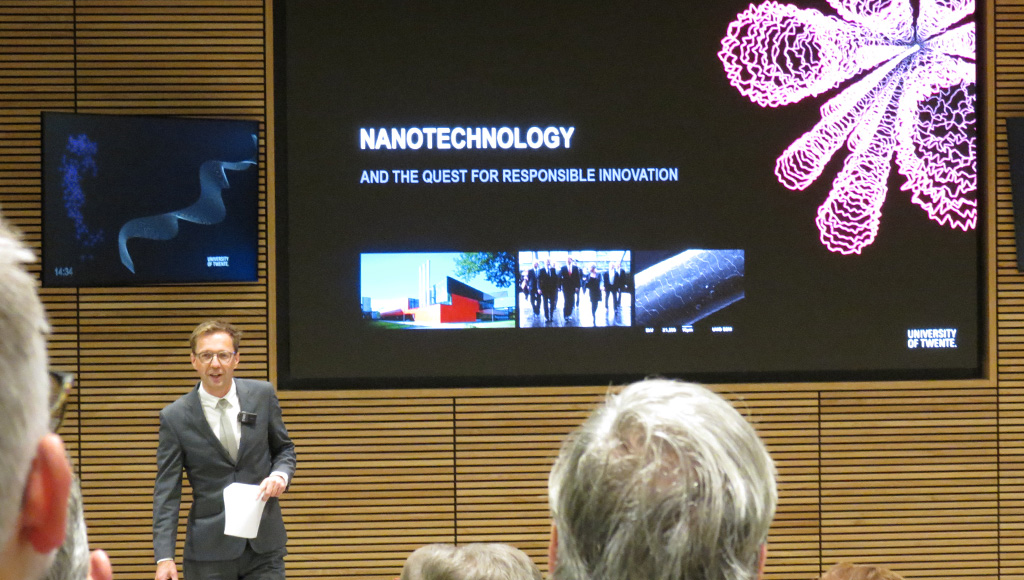Crossing Paths
On 24 November 2023 I had the great pleasure of attending Bart Walhout’s PhD defence at the University of Twente. Bart has been interested in responsible innovation for many years, his PhD representing more than 15 years engagement in the field.
Long-time friend of the Foundation Professor Sally Randles was a member of the Graduation Committee, and I was pleased to see some other familiar faces in the audience including Virgil Rerimassie who had defended his own PhD at the Eindhoven University of Technology in September (Wieber Bijker was on his commission, another familiar face at the Foundation).
This was a joyful event (as we might imagine) that really brought home an understanding of how the RI community has developed over the last (almost) two decades since I first joined the Bassetti Foundation.
I met Sally Randles around the same time that I met Virgil in 2014. At the time Sally was Affiliated Fellow to the Centre of Organisations Research and Design (CORD) at the Arizona State University. In some ways we could see Arizona State as the spiritual home of RI in the USA. Professor David Guston (whom regular readers will know well) was and is based there, and around this time the Foundation collaborated in the creation of the Virtual Institute for Responsible Innovation (VIRI) of which Guston was Director and Sally a member, the Bassetti Foundation a Founding Institutional Partner. The VIRI quickly grew, and the bringing together of these various institutions led to the founding of the Journal of Responsible Innovation and the expansion of an international community.
At the same time in the Netherlands, the NWO (Dutch Scientific Research Organization) program called Societally Responsible Innovation was in full swing and running an annual International Conference on Responsible Innovation. I met Virgil at the third in the series as we both presented posters.
The Theses
Bart’s thesis brings together the practices of implementation of what he describes as the political game of organizing responsibility from a Dutch and US perspective. The Centre for Nanotechnology in Society at Arizona State University played an important role in the US as its model was driven by responsible innovation approaches, a fact that is well represented in Bart’s publication, with David Guston and Erik Fisher’s voices very much to the fore. Ideas that we associate with Sally Randles such as de facto responsible innovation and Deep Insitutionalism are also deeply embedded within his argument.
Virgil writes about new developments in technology assessment, a discipline that is closely associated with RI and sometimes seen as a forerunner (echoing Bart’s call for a historical perspective maybe), asking the question of which role technology assessment can play in fostering the alignment between synthetic biology and society. Based on his experience of working as a technology assessment practitioner at the Rathenau Institute (where he and Bart were colleagues), Virgil analyzes the role of TA on three levels: Institutional, organizational and on the level of specific projects.
Describing the institute’s involvement with the SYNERGENE Project, Virgil brings more Foundation collaborators into the mix. Last year we published the latest episode of the Art in Responsible Innovation series featuring Mireia Bes Garcia from Bristol University and Oliver Langdon of Kilter Theatre who talked about their experiences of developing the interactive play Invincible as part of this project.
The lists of references for the two PhDs share many authors that have collaborated with the Foundation over the last thirty years, from Sally Randles and David Guston to Journal of Responsible Innovation Editor Erik Fisher, from Brian Wynne to Sheila Jasanoff, Federica Lucivero, Hillary Sutcliffe, Douglas Robinson, Ralf Lindner and Simone Arnaldi, not to mention a host of VIRI members, Bruno Latour, Rene von Schomberg and last but not least, our very own Angela Simone and myself.
In the thick of it we might say.
Both theses are available online and the Bassetti Foundation archive holds hard copies for consultation in Milan. Making a Difference? Nanotechnology and the Quest for Responsible Innovation, PhD thesis from Bart Walhout is free to download here, and Shaping the Unknown. New Developments in Technology Assessment to Align Synthetic Biology and Society from Virgil Rerimassie here.

















